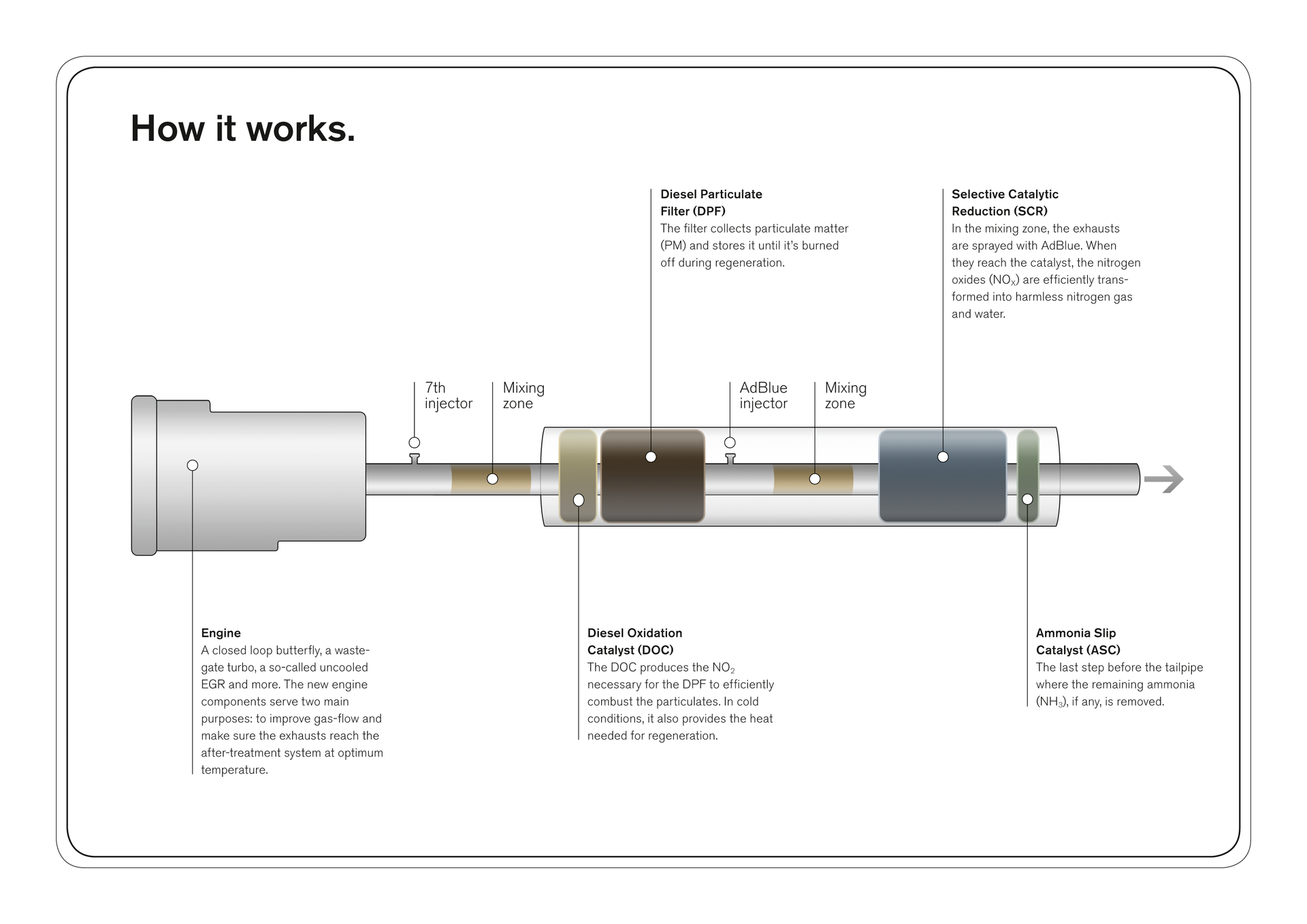
“The CTA’s position is this: let’s not go on a witch hunt at the scales throughout Canada, lifting up hoods and looking for things. The CTA is calling on provinces to go after the shops that are providing the service. We don’t have that federal penalty hanging over people, and we ask why not?” In the States, the EPA has tampering rules and they have state laws as well, but you face significant penalties in the US from the EPA when you tamper with emissions devices and you’re caught. “We would ask: why wouldn’t you have joint federal penalties along with the provincial penalties for these types of offenses to discourage it even more? That’s an issue we’re raising in Ottawa. “It’s then left to the provinces to enforce,” Laskowski said. The way the laws are currently written, Environment Canada relinquishes its authority over the vehicle once it’s manufactured to federal standards and delivered to the dealer or end user. You can’t have an economic advantage by going to a lawless carrier.” What we don’t want to have is folks who not only ruin the image of our industry but also compete with a tractor that’s more efficient because he’s tampered with his engine. If we are all using these engines, and these engines come with fuel efficiency restraints, if the restraints are shared by everyone, then that’s the reality of the sector. The second aspect of that is a competitive playing field. If we’ve made that investment, we’re all forced to make that investment. “There are societal benefits to that and image benefits over time. It has come with a heavy cost, but we now have smog-free, near zero emissions engines,” Stephen Laskowski, vice-president of the Canadian Trucking Alliance told Truck News. One, this is an image issue for our industry. “The issue here from a CTA perspective is two-fold. The Canadian Trucking Alliance (CTA) is calling on the provinces to begin enforcing anti-tampering laws and would like to see the feds do their part as well. This black hole of enforcement has spawned the creation of a rapidly growing underground – and in some cases, not so underground – industry, which is profiting at the expense of the environment. The recent consensus was that the provinces are responsible, but enforcement to date has been non-existent. Here in Canada, however, the feds and provinces have, until recently, been at loggerheads just to determine who should be enforcing clean diesel regulations. “This settlement holds Edge Products accountable for selling devices that allow consumers to disable the emission controls on their vehicles by requiring the company to pay a penalty, buy back the devices, and perform a project to offset the air pollution resulting from the Clean Air Act violations.”

“The Department of Justice will continue to vigilantly protect America’s health and environment through the enforcement of the Clean Air Act standards governing emissions from vehicles and engines,” Ignacia Moreno, Assistant Attorney General for the Justice Department’s Environment and Natural Resources Division announced in a press release, clearly intended to scare providers of such services. Need proof of enforcement? Look no further than a $500,000 fine levied by EPA in January against Edge Products, an American company that sold more than 9,000 devices allowing owners of model year 2007 or later diesel pick-up trucks to operate without their factory-installed diesel particulate filters. In the US, there is enforcement at both the federal and state levels, which would impose massive fines on companies providing EGR/DPF Delete services or the operators who have the work done to their trucks. That means an EPA10 engine is 12.5 times and 10 times cleaner than an EPA02 engine in terms of NOx and PM emissions, respectively. The current EPA10 limits are 0.2 grams NOx and 0.01 grams of particulate matter. The procedure, however, effectively reverses the environmental gains resulting from the advent of EGR and DPF systems introduced in 20 respectively, and essentially restores the vehicle to EPA02 pollution levels.Īn EPA02 engine had a regulated output of 2.5 grams NOx and 0.1 grams per brake horsepower hour of particulate matter. An investigation by Truck News has found that engine tampering to defeat emissions controls mandated on new trucks over the past decade is widespread and easily attainable.įrequently advertised as DPF Delete or EGR Delete kits, service providers offer to remove the emissions-reducing devices and then reprogram the engine for better performance at a cost of thousands of dollars, which shops claim will quickly be recovered through improved fuel economy and reliability.


 0 kommentar(er)
0 kommentar(er)
